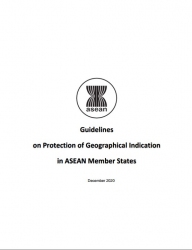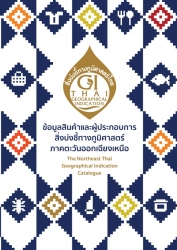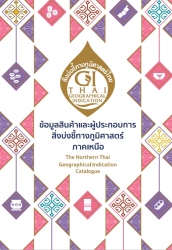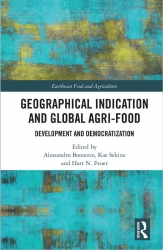
Author : Alessandro Bonanno, Kae Sekine, Hart N. Feuer
Publishing Date : Jun 25, 2019
This book addresses the relevance of geographical indication (GI) as a tool for local and socio-economic development and democratization of agri-food, with case studies from Asia, Europe and the Americas.
A geographical indication is a sign used on products that have a specific geographical origin and possess qualities or a reputation that are due to that origin. It provides not only a way for businesses to leverage the value of their geographically unique products, but also to inform and attract consumers. A highly contested topic, GI is praised as a tool for the revitalization of agricultural communities, while also criticized for being an instrument exploited by global corporate forces to promote their interests. There are concerns that the promotion of GI may hamper the establishment of democratic forms of development. The contributing authors address this topic by offering theoretically informed investigations of GI from around the world. The book includes case studies ranging from green tea in Japan, olive oil in Turkey and dried fish in Norway, to French wine and Mexican Mezcal. It also places GI in the broader context of the evolution and trends of agri-food under neoliberal globalization.
The book will be of interest to researchers, policy makers and students in agri-food studies, sociology of food and agriculture, geography, agricultural and rural economics, environmental and intellectual property law, and social development.
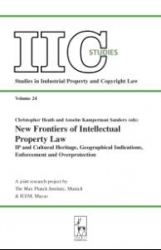
Author : Christopher Heath and Anselm Kamperman Sanders (eds)
Publishing Date : Nov 14, 2014
This book, arising from the collaboration between the IEEM in Macao and the Max Planck Institute in Munich, provides up-to-date information on developments in global intellectual property law and policy and their impact on regional economic and cultural development. The first two parts of the book give broad coverage to the protection of relative newcomers to the field of international intellectual property: cultural heritage and geographical indications. The third part deals with issues of enforcement which have become a major point of interest since the substantive intellectual property rules were put in place. Particular emphasis is given to enforcement systems in Asia, and to the subject matter of criminal enforcement that in many parts of the world is considered an important tool of effective protection. The final part of the book deals with the issue of multiple protection and overprotection, now a growing issue in IP law.
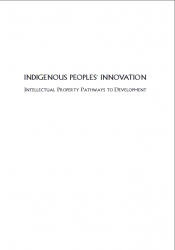
Author : Drahos, Peter; Frankel, Susy
Publishing Date : Mar 22, 2023
Traditional knowledge systems are also innovation systems. This book analyses the relationship between intellectual property and indigenous innovation.
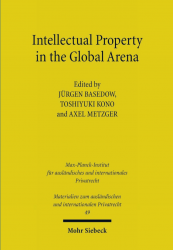
Author : Kono, Toshiyuki; Basedow, Jürgen; Metzger, Axel
Publishing Date : Mar 20, 2023
The private international law of intellectual property is currently much debated both in Europe and abroad. Art. 8 of the Rome II Regulation of 2007, which codifies a territorial approach for the infringement of intellectual property, has provoked an intensive discussion in Europe as to whether the lex loci protection is still appropriate for intellectual property litigation in the age of worldwide networks. A condensed outcome of this debate is summarized in the »Principles for Conflict of Laws in Intellectual Property« (CLIP Principles) drafted by the European Max Planck Group on Conflict of Laws in Intellectual Property (CLIP), published recently in a second preliminary draft. On the international scale, the American Law Institute's »Intellectual Property: Principles Governing Jurisdiction, Choice of Law, and Judgments in Transnational Disputes« of 2007 (ALI Principles) are the focal point of the debate. A Japanese project (»Transparency Proposal«) was finalized in 2009. This volume provides a comparative analysis of the three proposals. It compiles papers presented at an international conference held in Tokyo in May 2009.
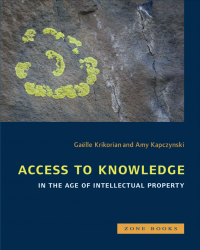
Author : Krikorian, Gaëlle; Kapczynski, Amy
Publishing Date : Mar 20, 2023
A movement emerges to challenge the tightening of intellectual property law around the world.At the end of the twentieth century, intellectual property rights collided with everyday life. Expansive copyright laws and digital rights management technologies sought to shut down new forms of copying and remixing made possible by the Internet. International laws expanding patent rights threatened the lives of millions of people around the world living with HIV/AIDS by limiting their access to cheap generic medicines. For decades, governments have tightened the grip of intellectual property law at the bidding of information industries; but recently, groups have emerged around the world to challenge this wave of enclosure with a new counter-politics of “access to knowledge” or “A2K.” They include software programmers who took to the streets to defeat software patents in Europe, AIDS activists who forced multinational pharmaceutical companies to permit copies of their medicines to be sold in poor countries, subsistence farmers defending their rights to food security or access to agricultural biotechnology, and college students who created a new “free culture” movement to defend the digital commons. Access to Knowledge in the Age of Intellectual Property maps this emerging field of activism as a series of historical moments, strategies, and concepts. It gathers some of the most important thinkers and advocates in the field to make the stakes and strategies at play in this new domain visible and the terms of intellectual property law intelligible in their political implications around the world. A Creative Commons edition of this work will be freely available online.
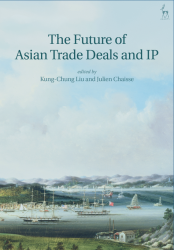
Author : Liu, Kung-Chung; Chaisse, Julien
Publishing Date : Mar 20, 2023
The first part of this open access book sets out to re-examine some basic principles of trade negotiation, such as choosing the right representatives to negotiate and enhancing transparency as a cure to the public’s distrust against trade talks. Moreover, it analyses how the Comprehensive and Progressive Agreement for the Trans-Pacific Partnership (CPTPP) might impact on the Regional Comprehensive Economic Partnership's (RCEP) IP chapter and examines the possible norm setters of Asian IP. It then focuses on the People's Republic of China's (PRC) trade and IP strategy against the backdrop of the power games between the PRC, India and the US. The second part of the book reflects on issues related to investor–state dispute settlement and its relationship with IP, such as how to re-calibrate the balance in international investment arbitration, and whether compulsory license of IP constitutes expropriation in India, the PRC and select ASEAN countries. The third part of the book questions and strives to improve some of the proposed IP provisions of CPTPP and RCEP and to redefine some aspects of international IP norms, such as: pre-grant patent opposition and experimental use exception; patent term extension; patent linkage and data exclusivity for the pharmaceutical sector; plant variety protection; pre-established damages for copyright infringement; and the restructuring of copyright limitations in the public interest. The open access edition of this book is available under a CC BY-NC-ND 3.0 licence on bloomsburycollections.com. Open access was funded by the Applied Research Centre for Intellectual Assets and the Law in Asia, School of Law, Singapore Management University.
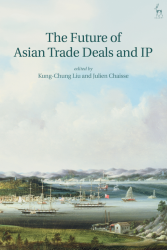
Author : Liu, Kung-Chung; Chaisse, Julien
Publishing Date : Mar 24, 2023
The first part of this open access book sets out to re-examine some basic principles of trade negotiation, such as choosing the right representatives to negotiate and enhancing transparency as a cure to the public’s distrust against trade talks. Moreover, it analyses how the Comprehensive and Progressive Agreement for the Trans-Pacific Partnership (CPTPP) might impact on the Regional Comprehensive Economic Partnership's (RCEP) IP chapter and examines the possible norm setters of Asian IP. It then focuses on the People's Republic of China's (PRC) trade and IP strategy against the backdrop of the power games between the PRC, India and the US. The second part of the book reflects on issues related to investor–state dispute settlement and its relationship with IP, such as how to re-calibrate the balance in international investment arbitration, and whether compulsory license of IP constitutes expropriation in India, the PRC and select ASEAN countries. The third part of the book questions and strives to improve some of the proposed IP provisions of CPTPP and RCEP and to redefine some aspects of international IP norms, such as: pre-grant patent opposition and experimental use exception; patent term extension; patent linkage and data exclusivity for the pharmaceutical sector; plant variety protection; pre-established damages for copyright infringement; and the restructuring of copyright limitations in the public interest. The open access edition of this book is available under a CC BY-NC-ND 3.0 licence on bloomsburycollections.com. Open access was funded by the Applied Research Centre for Intellectual Assets and the Law in Asia, School of Law, Singapore Management University.
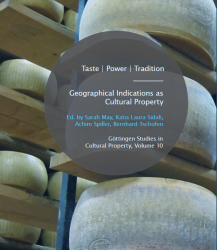
Author : Taste | Power | Tradition - Geographical Indications as Cultural Property
Publishing Date : May 11, 2023
The idea of origin in terms of space and culture as a special indicator of quality is one of the most influential strands in contemporary food. It impacts on politics, economics and everyday life – and it connects these fields with complex relations of power and culture. With geographical indications, the EU offers an instrument which allows for the declaration of specialties, qualified by their tradition, as typical for a defined area. The declaration serves to protect these products as intellectual and collective property and presents them as culinary heritage, thereby enabling sale at an added value. Accordingly, the EU instrument of geographical indications evokes the interests of a variety of disciplines, such as (agricultural) economics, (social) geography, sociology, anthropology and law. Nonetheless, dialogue and cooperation among the disciplines are quite rare. “Taste | Power | Tradition” gives an insight into this multidisciplinary debate and brings together empirical data and theoretical reflections from different perspectives.
The idea of origin in terms of space and culture as a special indicator of quality is one of the most influential strands in contemporary food. It impacts on politics, economics and everyday life – and it connects these fields with complex relations of power and culture. With geographical indications, the EU offers an instrument which allows for the declaration of specialties, qualified by their tradition, as typical for a defined area. The declaration serves to protect these products as intellectual and collective property and presents them as culinary heritage, thereby enabling sale at an added value. Accordingly, the EU instrument of geographical indications evokes the interests of a variety of disciplines, such as (agricultural) economics, (social) geography, sociology, anthropology and law. Nonetheless, dialogue and cooperation among the disciplines are quite rare. “Taste | Power | Tradition” gives an insight into this multidisciplinary debate and brings together empirical data and theoretical reflections from different perspectives.
123NextLast

